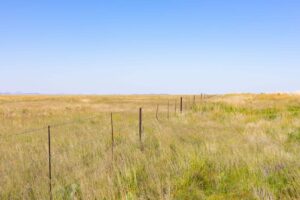Better times are coming now that 43% of debt outstanding has been repaid, says deputy finance minister.

The ailing state-owned Land Bank has been propped up with R10 billion by the state since defaulting on its debt obligations in April 2020, Deputy Finance Minister David Masondo told Parliament’s Standing Committee on Public Accounts (Scopa) on Tuesday.
National Treasury recapitalised the bank to the tune of R3 billion in 2020, which allowed it to continue servicing interest on outstanding debts while starting to pay down capital.
The remaining R7 billion (out of R10 billion state support) is still available to be transferred to the Land Bank, subject to it concluding debt restructuring agreements that will cure its default position, says Masondo.
ALSO READ: WATCH: Land invasions to blame for Joburg informal settlement’s water crisis
Normal banking activities have been severely curtailed since the default, with only limited disbursements to performing clients.
The annual report to March 2022 shows an increase in non-performing loans (NPLs) to R12.3 billion from R12 billion the prior year – though there was an improvement in NPL performance in the early months of 2022.
Criticism
Farmers have criticised the bank’s debt recovery process, saying they are being driven out of business for relatively small amounts of debt – despite the value of their assets far exceeding their liabilities.
The Southern African Agri Initiative (Saai) says it has sent an application in terms of the Promotion of Access to Information Act (PAIA) to the Land Bank to get details on the total debtors’ book, all summonses issued, and all warrants of execution issued to debtors on behalf of the bank.
Saai wants all legal action against Land Bank customers to be suspended, pending a proper and independent investigation into “irregularities, motives and modus operandi” employed by the bank against defaulting customers.
The bank has denied it has been involved in aggressive methods of liquidating clients in default, saying it employs a number of “forbearance” measures to assist struggling clients. It encourages those in trouble to contact the bank ahead of time to obviate the needs to pursue legal solutions for debt recovery.
Listen as the Land Bank’s Sydney Soundy responds to the allegations in this SAfm Market Update with Moneyweb interview (or read the transcript here):
Progress
While the Land Bank remains in default, it has managed to repay 43% of the debt that was outstanding in 2020 and only R1.5 billion of guaranteed debt remains. A further reduction of debt is expected in the current financial year.
There has also been an improvement in governance, with the Auditor-General awarding the bank a clean audit in 2022, compared with the qualified (2021) and disclaimed (2020) audit options of previous years.
The bank’s financial performance improved over the last year, particularly in key measures such as liquidity and solvency.
A net profit of R1.4 billion was reported in the 2022 financial year, against a net loss of R711 million the year prior.
At the operating level, Land Bank reported a profit of R11.7 million in 2022.
Controversial aspect
The restructuring of the bank has not been without its controversies.
Various “liability solutions” have been proposed, the most recent of which involves the splitting of its corporate and commercial (C&C) book from its development and transformational (D&T) books, the latter being subsidised by the former.
Should this plan proceed, according to Future Growth, it means the Land Bank would shift its focus towards developmental agriculture and transformation, in the process sacrificing a large part of the revenues generated from its more commercially-focused operations.
Another controversial aspect
Masondo also pointed to the risk of creditors obtaining judgment and executing against its assets – including its loan book – in terms of the high court rules governing liquidations.
“This process may lead to unstructured liquidation or disorderly wind down of the Land Bank,” he said.
“Although the process would be extremely cumbersome, time consuming and expensive for the lenders to invoke, there are no guarantees that the lenders may not resort and invoke it.
“The National Treasury and the government view the Land Bank as an important institution given its role in protecting food security and providing vital financial assistance to developing farmers.
“The Bank should therefore be protected from an unorderly wind down or any litigations by limiting the ability of third-party lenders from placing the bank in liquidation,” said Masondo.
National Treasury is backing the bank’s effort to amend the Land Bank Act which would replace the current provision for judicial management with business rescue under the Companies Act of 2008.
The proposed changes to the law would however limit those able to apply to court for business rescue to the Land Bank and the minister of finance, thereby depriving a voice to other interested and affected parties.
There’s also growing concern at the lack of management stability at the bank, with CEO Ayanda Kanana resigning in February this year, alongside economics and advisory manager Litha Magingxa.
CFO Khensani Mukhari was appointed acting CEO in May.
Listen as Fifi Peters talks to Chris Alderson of RMB about its new agri platform, launched in response to the Land Bank funding gap (or read the transcript here):
This article originally appeared on Moneyweb and was republished with permission.
Read the original article here.






